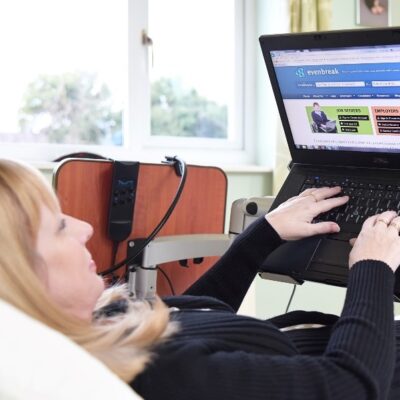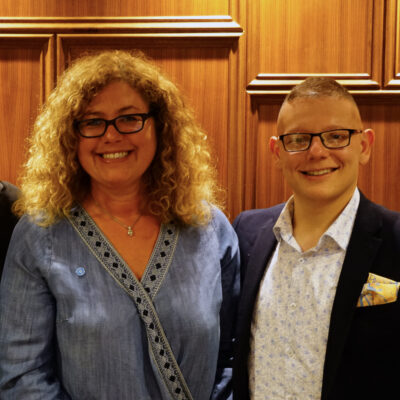So far, around 50 social entrepreneurs have used the Human Lending Library to discuss business challenges with experienced mentors in 2020.
When we match a mentee with a mentor, they get an hour together. Not every mentee wants more time with their mentor, but sometimes there is a rapport and the two parties continue to stay in touch.
Sarah Bentley is the founder of social enterprise Made in Hackney, a pioneering 100% plant-based community cookery school that teaches people to grow, cook and eat more plants to improve both their own health and that of our planet.
At the beginning of April, Sarah met Karen Lynch, the former CEO of water company Belu. As well as leading one of the UK’s most successful social enterprises for a decade, Karen also has extensive experience in publishing and finance.
And it was Karen that told us how well Sarah was managing the relationship. They’ve spoken several times since, so what was Sarah doing so right?
“I think you need to appreciate what works for your mentor and work yourself into that,” said Sarah.
“If they say ‘I’m really busy right now, I’ll come back to you’, don’t push back. Say ‘Great, I’ll reconnect with you in a week or two if that’s ok with you’. Work out what your mentor’s boundaries are and don’t push beyond them, but push within them.”
Sarah tells us she has had several different mentors (including Planet Organic’s Renée Elliott) since founding Made In Hackney in 2012, “although all of them more recently” and has learnt from working with each of them.
She credits chemistry as important for wanting to continue a mentoring relationship and says there are signs you can look for and ways of behaving if you want it to continue.
“If you spot that there is a fit, that person totally gets you and what you do, that you understand the advice they are giving rather than thinking ‘they don’t get it’, then you need to be quite forward in offering some praise at the end,” said Sarah.
She suggests telling them why their advice has been beneficial and telling them you’d like to stay in touch, but emphasising there is no pressure to decide at that moment.
“You put that offer out there that you’d be really appreciative and grateful to have that relationship continue but without putting them on the spot to say yes or no right then or there,” said Sarah.
If the relationship continues, Sarah thinks it’s important to establish the aforementioned boundaries so that you understand what you can ask for, what you can’t and how often.
“If you’re just a pain in the arse, they’ll just untether you, they’ll just let you go!” said Sarah, laughing.
Sarah credits Karen for being a sounding board about a previous idea she had about taking the organisation forward. After thrashing through the logistics, it helped her decide the idea wasn’t viable. But they’ll be discussing another matter soon she hopes.
“She’s brilliant. Every hour with her is critical. Whatever we are doing she will have useful insight. I basically tell her what we are up to and she responds with loads of wisdom.”
The Human Lending Library has more than 50 mentors to choose from and, like all good libraries, is completely free to use.
Photo by Amy Hirschi on Unsplash



